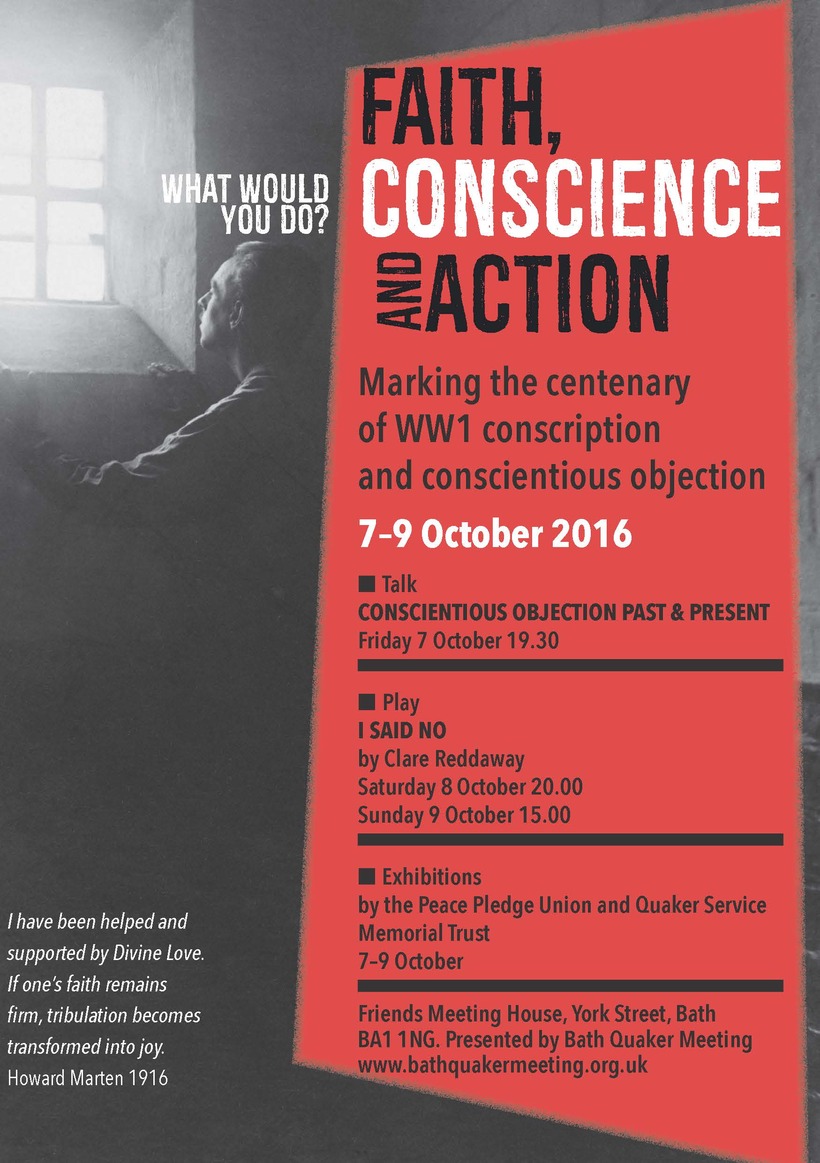Conscientious objection past and present
Bath Quakers wanted to raise awareness in our local community of the ongoing struggle for the right to conscientious objection and to resist the veneration of warfare, from World War I to the present day. This was a three-part project, comprising a public exhibition, a public talk and a specially-commissioned play.

At the launch of the White Feather Diaries (website no longer available) in Bath during Yearly Meeting Gathering in 2014, we made contact with a member of the armed forces who supported people seeking honourable discharge from the army on conscientious grounds during the Troubles in Northern Ireland. This led us to decide to highlight how conscientious objection is a thread that runs through our community and to encourage greater public awareness and participation in the issues.
A three-part project
We arranged a public meeting at which Major Richard Beath spoke about his experiences in Northern Ireland, and local Friends Nick and Diana Francis spoke about their parents' experiences as conscientious objectors (COs) in World War II.
The accompanying exhibition combined the Peace Pledge Union's 'The Men Who Said No' exhibition with contributions from a local Friend whose father was a CO in World War I. Visitors to the exhibition were encouraged to tell us stories of conscientious objection and alternative service in their own families.
Finally, there was the play, specially commissioned by Bath Friends and written by Clare Reddaway. I Said No was entirely based on real testimonies and explored the struggle of a man as he follows his conscience and objects to killing his fellow man. After two performances in Bath Friends' Meeting House during Quaker Week, it will then be performed professionally in the Rondo Theatre, Bath.
The possibility of alternatives
This was the largest outreach event we have organised in years and brought the message of peace and the possibility of alternatives to war into our community in accessible yet thought-provoking ways. We found that many doors opened for us particularly the engagement by the writer and actors, none of whom had previously worked with Quakers. We hope that many other meetings and, indeed, non-Quaker organisations, will feel inspired to stage the play in future, keeping alive the message that, upheld by our faith, we can continue to oppose the warmongering state.